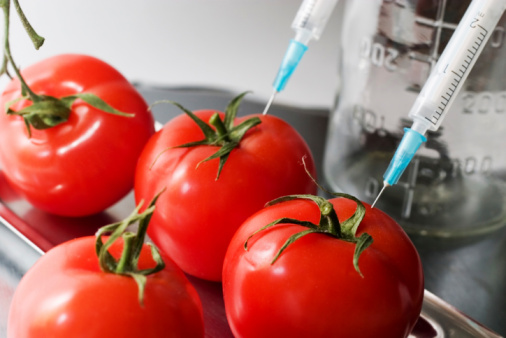Genetically Modified Foods – An Asset to the World
Despite the controversy surrounding genetically changed ingredients, they are used by humans and the environment. Genetically modified vegetation can repel harmful bugs while at the same time generating greater fruit. They are better for the environment, healthier, and less expensive than natural ingredients. Nowadays, organic ingredients are not green sufficient, so they cost extra and are harder to produce than GM meals. While this creates a new market for people, which can be towards genetically modified meals, for the common individual, it is impractical. GM foods are the future foods, and they may be here to stay.
GM meals are labeled as any species of plant or animal that has had its DNA altered. The alteration typically produces desirable trends located both rarely or under no circumstances in the unique species. The DNA can be modified by way of either permitting a dormant gene to be expressed or through “splicing,” which is a process that allows a DNA section with suitable developments to be cut from its strand and inserted into the DNA strand of the organism to be genetically modified. Through this system, many blessings can be gained.

Despite all this stuff, human beings have arguments about GM ingredients. One gain is that GM crops take some distance and much less time to develop and become fertile. Another is that they also can be adjusted to better face up to the by no means-ending onslaught of pests consisting of bugs, as the nicely unwanted weather. This is a boom in production because people can get what they want after they need it, a superb aspect in an ultra-modern, fast-paced world wherein many people are acquainted with immediate gratification. Also, GM foods are arguably better tasting than some of their herbal opposite numbers and now have a much higher risk of being a usual higher product. However, it cannot be denied that genetically changed meals are a global trend and deliver many benefits.
Some arguments towards GM meals are allergies, the impact of GM ingredients on their surroundings, and, ultimately, the science’s ethics. Of those, truely all the medical arguments can be solved. One of the arguments in the query is that GM ingredients carry a few threats of inflicting allergy. The purpose is that there’s a completely slender chance that the DNA section reduces all through the splicing system, consisting of code that produces proteins that people can be allergic to. So basically, if someone allergic to peanuts ate a piece of bread crafted from GM wheat that shared DNA with a peanut, that person would possibly have an allergic reaction (if he became extraordinarily unlucky).
This hassle can be solved through producers enlisting viable allergens of their merchandise on the can or box in which the product is available. Suppose the product in question is a few products or other products that aren’t available in a container, can, or another box that may be classified. In that case, other preparations can genuinely be made. A 2D argument regarding GM meals is their effect on the environment. Genetically modified foods do have an impact on the environment, but it isn’t always decidedly poor. While genetically changed meals may negatively affect a few ecosystem elements, this is not recognized for certain. One issue that is for sure is that many forms of GM vegetation are poisonous to certain pests that could, in any other case, wreak their havoc no longer most effective in different crops but in nature too.
One of the remaining and most complicated arguments towards GM foods is the query of morals. Is God k with us tampering along with his creations? Regardless of the answer, we have been doing this precisely for many years. While mature, corn grew to be only approximately 3-four inches in length. We used selective breeding to attain appropriate developments in each vegetation and farm animal; we are simply dashing this manner when you consider historical times using editing DNA without delay. In the start, God said that each one of the plants and creatures of the earth was ours, and now we’re just eventually starting to scratch the floor of what that truly is.
Though many human beings have disliked GM meals, it cannot be denied that those meals are making a difference worldwide. Farmers now do not want to apply insecticides on their vegetation because they have been genetically altered to be immune to some pests. Farmers additionally do not need to worry about the consequences of bloodless or freezing climate on some crops. Frost can ruin seedlings that may, in turn, spoil entire harvests. However, with the insertion of an antifreeze gene located in many species of cold-water fish, those flowers can tolerate those harsh situations.
Furthermore, because flora can also be modified to be harder and more fertile, greater crops can be produced using a notably lower variety of seeds. Another common beneficial change observed in GM plants allows them to be immune to Glyphosate, which is more popularly acknowledged by its commercial name: Roundup. Glyphosate is an herbicide that kills all plant life aside from the GM foods that have been tailored to resist it. This resistance means farmers use one herbicide to wipe out undesired flowers instead of focusing on the most effective threats. But, genetically modified foods are not the best-supporting farmers, and the average man or woman may be assisting humans worldwide.











